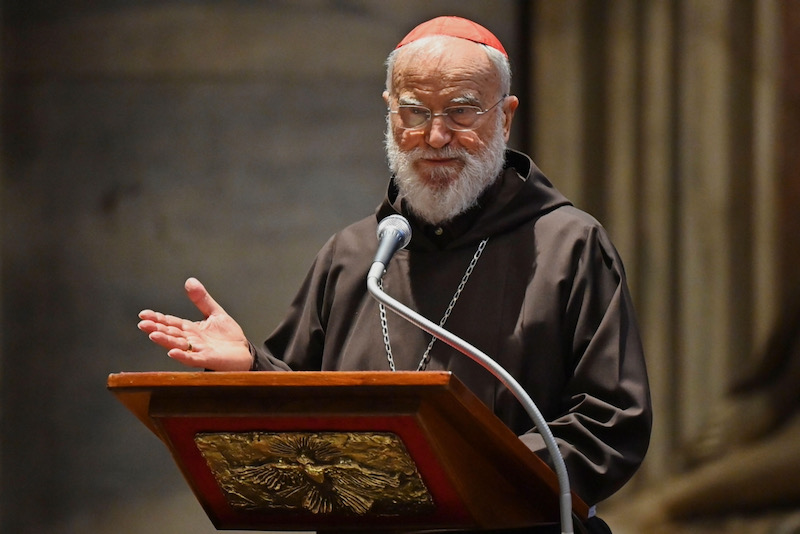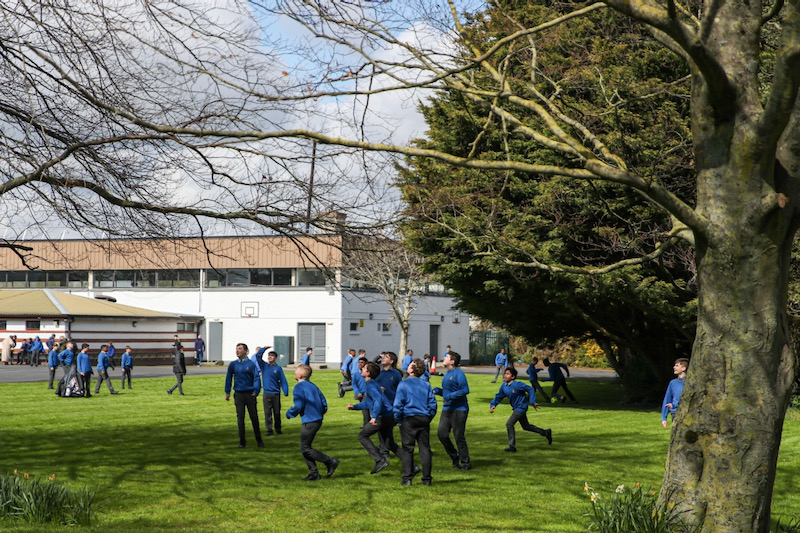A suggestion that religious education could be left out of the school curriculum has been condemned as “a backward step” by Archbishop of Dublin Dermot Farrell.
Speaking to the annual conference of the Catholic Primary Schools Management Association’s (CPSMA), which represents the boards of management of the more than 2,800 catholic primary schools in Ireland, the Archbishop said the place of religious education in Catholic schools is “central”.
He said the curriculum should facilitate it “generously and with ease, not simply as a possible add-on”.
Taking issue with the suggestion in the draft primary curriculum framework that religious education could somehow be separated out or left out he said: “In the plural reality of society today we need to build up respect for others rather than diminish it by mistakenly downplaying significant questions, such as the fundamental importance of religious education in schools provided in ways that are wholesome and open to difference.”
The Archbishop, who is patron of more than ninety per cent of catholic primary schools in Dublin, began his address by thanking school principals and staff for how well they cared for school children throughout the Covid-19 pandemic.
He said they had engaged very closely with parents and guardians throughout the health emergency to ensure that the education of their children continued.
“I congratulate you on how you have embraced technology to ensure continued interaction and teaching. Your generous engagement, and that of school staff, in remote and online learning platforms has done a great deal to support the children and their parents, and has greatly assisted them in navigating what for them was a very abnormal educational landscape.”
There had also been a focus on and concern for children who did not have resources, such as access to the internet, or those who did not possess a laptop or an iPad. Notwithstanding these issues, he said the real benefit of technology has been established by the pandemic
Commending schools for going “the extra mile”, he said some had arranged that pupils who were availing of school breakfast and lunch services had the food service continue during the lockdown. Schools had also supported families affected by Covid-19 and kept in contact especially when a member of a pupil’s family died because of Covid-19.
“Parents have come through the experience of home-schooling to a new awareness of the vital role of the school and the teacher,” Archbishop Farrell said.
Elsewhere in his address, the leader of the country’s largest diocese described the partnership between family, parish and school as an immensely valuable component of the Catholic school and acknowledged that it was not something that happens without effort.
“There is a need for Catholic schools to work continuously at connecting strongly with local parish/parishes – opening up what the school can give to the faith community – and what it can receive from the faith community.”
He urged the members of the CPSMA to revitalise the connections locally between home, school and parish, so that the school could be a support to families in connecting with parish, particularly when they decide in favour of sacramental participation in the life of the Church.
On the sacraments of First Holy Communion and Confirmation, the Archbishop warned that they cannot be a one-day ‘school event’ organised in a local church.
“Young people and their families should understand that the young person is registering for initiation into the life of the parish community, deepening their life as a Christian, committing to becoming step by step an engaged disciple of Jesus and an active member of the Church, supported on this journey by the school,” he stressed.
He reminded parents that when they enrol their children in the parish for these sacraments they are enrolling them on a lifelong journey and added that the parish and the Catholic school are supports for parents in developing their own relationship with God and that of their children.
The Archbishop also defended ‘Flourish’, a new resource for Relationships and Sexuality Education for catholic primary schools as something which “celebrates life and love” in his address. Admitting that there was “always the risk of life-sapping ideology”, he said this was the opposite of the wellbeing, vibrancy, and hope that Flourish set out to nurture.
The resource, which caters from junior infants to sixth class, includes lessons on topics like safe internet usage, puberty and LGBTQI people.
He said it was designed to fill a need which became apparent after wide consultation with parents, teachers and school leaders in the catholic sector.
In recent weeks, there have been some criticism in wider society of an introductory document to the resource entitled, ‘The vision for RSE in catholic primary schools’ because on the issue of LGBTQIs it says that the catholic school must consider these topics within a moral framework that reflects the teachings of the Church and that the Church’s teaching in relation to marriage between a man and a woman cannot be omitted.
In his address, Archbishop Farrell said that the resource material “clearly states that any young person grappling with questions around their own gender identity or sexual orientation is be treated with the utmost care and respect” and that it addresses the issue of family type and acknowledges that love is at the heart of family life, no matter what type of family it is.



 Loading ...
Loading ...